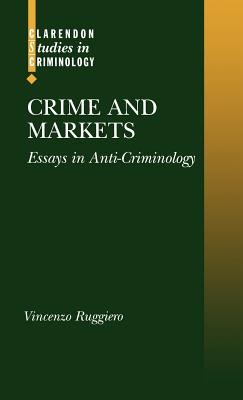
- We will send in 10–14 business days.
- Author: Vincenzo Ruggiero
- Publisher: Oxford University Press, USA
- ISBN-10: 0198268386
- ISBN-13: 9780198268383
- Format: 15 x 23 x 2 cm, kieti viršeliai
- Language: English
- SAVE -10% with code: EXTRA
Reviews
Description
This book examines a range of criminal activities conducted in different European contexts. Offences committed by individuals and groups endowed with different resources and status are examined. Each chapter contains an implicit rejection of generalizations and attention is paid to variations and differences. Rather than searching for a unified theory of crime, the author highlights the interpretive oscillations, which always occur when we are faced with criminal behaviour. In other words, each time we subscribe to one cause of crime we may realize that also the opposite cause possesses some reasonable validity. The originality of this book consists of the `causality of contraries' running through the chapters, whereby a tentative aetiology identified in one context finds its complete overturning in anther. The author regards the `causality of contraries' as a crucial aspect of the anti-criminological tradition to which he claims affiliation. These `essays in anti-criminology'
deal with crimes of both the powerless and the powerful, and seek to demonstrate that both the deficiency and the abundance of legitimate opportunities may lead to crime.
EXTRA 10 % discount with code: EXTRA
The promotion ends in 22d.12:50:38
The discount code is valid when purchasing from 10 €. Discounts do not stack.
- Author: Vincenzo Ruggiero
- Publisher: Oxford University Press, USA
- ISBN-10: 0198268386
- ISBN-13: 9780198268383
- Format: 15 x 23 x 2 cm, kieti viršeliai
- Language: English English
This book examines a range of criminal activities conducted in different European contexts. Offences committed by individuals and groups endowed with different resources and status are examined. Each chapter contains an implicit rejection of generalizations and attention is paid to variations and differences. Rather than searching for a unified theory of crime, the author highlights the interpretive oscillations, which always occur when we are faced with criminal behaviour. In other words, each time we subscribe to one cause of crime we may realize that also the opposite cause possesses some reasonable validity. The originality of this book consists of the `causality of contraries' running through the chapters, whereby a tentative aetiology identified in one context finds its complete overturning in anther. The author regards the `causality of contraries' as a crucial aspect of the anti-criminological tradition to which he claims affiliation. These `essays in anti-criminology'
deal with crimes of both the powerless and the powerful, and seek to demonstrate that both the deficiency and the abundance of legitimate opportunities may lead to crime.


Reviews